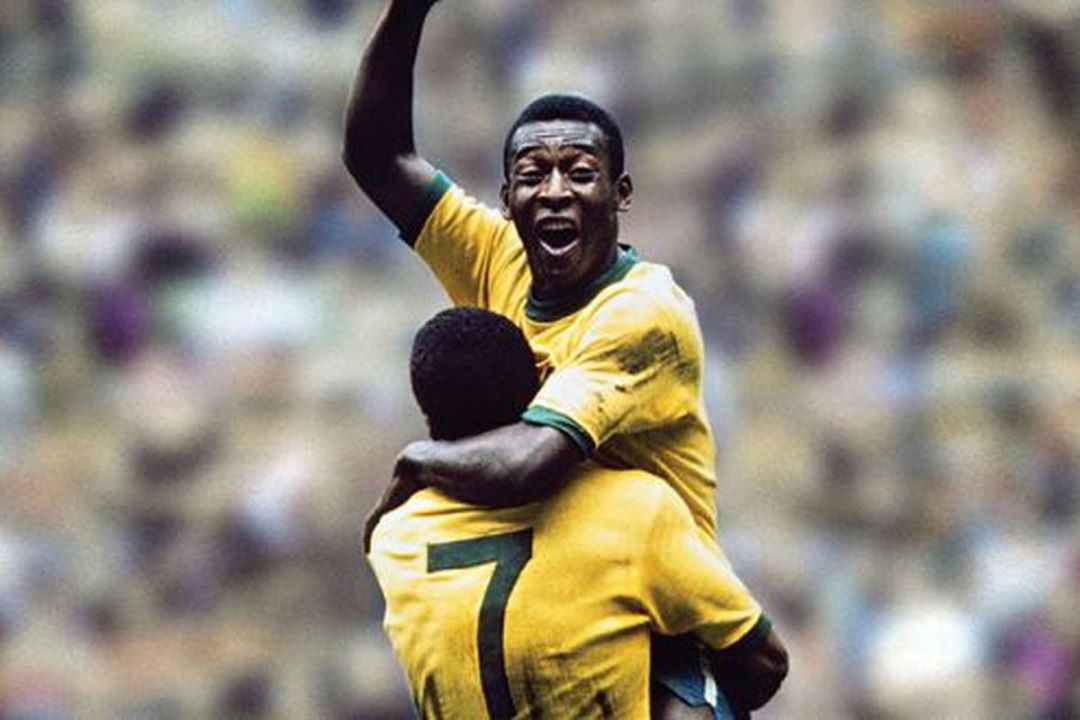A total of 609 people have won the World Cup: 471 men and 138 women. While 48 have won it twice, 20 men and 28 women, only one person has ever won the world’s biggest sporting event three times: Edson Arantes do Nascimento. You probably know him as Pelé.
One of the greatest footballers to ever play the beautiful game – a nickname for the sport popularized by the Brazilian – Pelé won the World Cup in 1958, 1962 and 1970, and it’s the 1970 World Cup I want to write about.
Brazil is the most successful nation at football’s biggest tournament but they are also an anomaly. Eight nations have won the World Cup but of those, two have never won the tournament as hosts. One is Spain, which before 2008 was pretty average at international tournaments and has returned to being average since 2012. The other is five-time world champions Brazil. Even England won it the only time they hosted.
Brazil hosted in 1950 and 2014. Both times they suffered shocking defeats. They fell to Uruguay in the final in the former and lost to Germany in that semi-final in the latter. In between those two humiliating defeats is the story of Brazil’s dominance and of Pelé.
In 1958, Brazil won their first World Cup title and Pelé was immense. He scored six goals in four matches, including a hat-trick in the semi-final against France and two goals in the final against Sweden. He was only 17.
The 1962 World Cup saw Pelé play only two matches due to an injury. Brazil won the title again.
In 1966, he played the first and third games of Brazil’s campaign but missed the second through injury due to vicious tackling in the first game. This time they failed to get out of their group and Pelé vowed to never play in the World Cup again.
This brings us to Mexico in 1970, a World Cup of firsts. The first held in Latin America. The first where referees were able to use yellow and red cards. The first broadcast in colour. The first where all four semi-finalists had already won a World Cup. The first where the victorious head coach had already won as a player and Pelé’s last World Cup. But we’re getting ahead of ourselves.
Pelé returned to the national team in 1969 and scored six goals in six matches as Brazil won all their games and qualified for the 1970 World Cup. In the group stages, they faced Czechoslovakia, England and Romania.
Pelé scored in Brazil’s 4-1 win over Czechoslovakia, assisted Jairzinho in Brazil’s 1-0 win over defending world champions England and scored twice as Brazil beat Romania 3-2.
The Seleção scored four again in the quarter-final when they defeated Peru 4-2 and Pelé assisted their third goal. He then repeated the feat in their 3-1 victory over two-time winners Uruguay as Brazil took revenge for the 1950 World Cup final loss suffered at the hands, or more aptly the feet, of their South American rivals.
The final pitted Brazil against the first nation to ever win back-to-back World Cups: Italy. Pelé ensured his country became the first three-time winners. He scored the opening goal, Brazil’s 100th World Cup goal, then assisted the third and fourth goals as Brazil demolished Italy 4-1.
In his last World Cup, Pelé scored four goals and, as far as I can tell, had five assists contributing to nine of the 19 goals Brazil scored in six games. He won player of the tournament as part of one of the most celebrated World Cup winning teams ever, a team that cemented itself as the most successful at the time and remains so till this day.
No other nation has won three out of a possible four World Cups. No other person has.
Pelé passed away on Thursday, Dec. 29 2022, just 11 days after the 2022 World Cup final. It seems apt that even in death his legacy is tied to the tournament that is synonymous with his country and his name.
Since Pelé took them to the promised land in 1958, Brazil has experienced two World Cup droughts. Twenty-four years separated their victories in 1970 and 1994. When the 2026 World Cup kicks off it will be 24 years since their fifth and last triumph in 2002.
Maybe, just maybe, in their first World Cup without the King, Brazil can replicate the 1970 World Cup.



